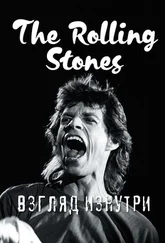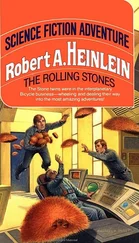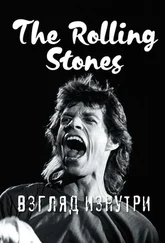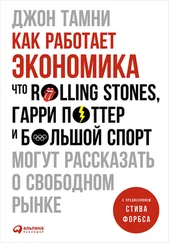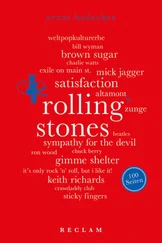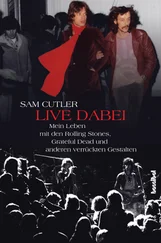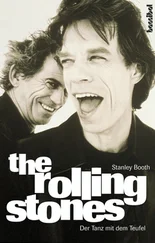O'Henry - Rolling Stones
Здесь есть возможность читать онлайн «O'Henry - Rolling Stones» весь текст электронной книги совершенно бесплатно (целиком полную версию без сокращений). В некоторых случаях можно слушать аудио, скачать через торрент в формате fb2 и присутствует краткое содержание. Жанр: Классическая проза, Юмористическая проза, на английском языке. Описание произведения, (предисловие) а так же отзывы посетителей доступны на портале библиотеки ЛибКат.
- Название:Rolling Stones
- Автор:
- Жанр:
- Год:неизвестен
- ISBN:нет данных
- Рейтинг книги:5 / 5. Голосов: 1
-
Избранное:Добавить в избранное
- Отзывы:
-
Ваша оценка:
- 100
- 1
- 2
- 3
- 4
- 5
Rolling Stones: краткое содержание, описание и аннотация
Предлагаем к чтению аннотацию, описание, краткое содержание или предисловие (зависит от того, что написал сам автор книги «Rolling Stones»). Если вы не нашли необходимую информацию о книге — напишите в комментариях, мы постараемся отыскать её.
Rolling Stones — читать онлайн бесплатно полную книгу (весь текст) целиком
Ниже представлен текст книги, разбитый по страницам. Система сохранения места последней прочитанной страницы, позволяет с удобством читать онлайн бесплатно книгу «Rolling Stones», без необходимости каждый раз заново искать на чём Вы остановились. Поставьте закладку, и сможете в любой момент перейти на страницу, на которой закончили чтение.
Интервал:
Закладка:
My Dear Mr. Steger: My idea is to write the story of a man--an individual, not a type--but a man who, at the same time, I want to represent a "human nature type," if such a person could exist. The story will teach no lesson, inculcate no moral, advance no theory. I want it to be something that it won't or can't be--but as near as I can make it--the true record of a man's thoughts, his description of his mischances and adventures, his TRUE opinions of life as he has seen it and his ABSOLUTELY HONEST deductions, comments, and views upon the different phases of life that he passes through.
I do not remember ever to have read an autobiography, a biography, or a piece of fiction that told the TRUTH. Of course, I have read stuff such as Rousseau and Zola and George Moore and various memoirs that were supposed to be window panes in their respective breasts; but, mostly, all of them were either liars, actors, or posers. (Of course, I'm not trying to belittle the greatness of their literary expression.)
All of us have to be prevaricators, hypocrites and liars every day of our lives; otherwise the social structure would fall into pieces the first day. We must act in one another's presence just as we must wear clothes. It is for the best.
The trouble about writing the truth has been that the writers have kept in their minds one or another or all of three thoughts that made a handicap--they were trying either to do a piece of immortal literature, or to shock the public or to please editors. Some of them succeeded in all three, but they did not write the TRUTH. Most autobiographies are insincere from beginning to end. About the only chance for the truth to be told is in fiction. It is well understood that "all the truth" cannot be told in print--but how about "nothing but the truth"? That's what I want to do.
I want the man who is telling the story to tell it--not as he would to a reading public or to a confessor--but something in this way: Suppose he were marooned on an island in mid-ocean with no hope of ever being rescued; and, in order to pass away some of the time he should tell a story to HIMSELF embodying his adventure and experiences and opinions. Having a certain respect for himself (let us hope) he would leave out the "realism" that he would have no chance of selling in the market; he would omit the lies and self-conscious poses, and would turn out to his one auditor something real and true.
So, as truth is not to be found in history, autobiography, press reports (nor at the bottom of an H. G. Wells), let us hope that fiction may be the means of bringing out a few grains of it.
The "hero" of the story will be a man born and "raised" in a somnolent little southern town. His education is about a common school one, but he learns afterward from reading and life. I'm going to try to give him a "style" in narrative and speech--the best I've got in the shop. I'm going to take him through all the main phases of life--wild adventure, city, society, something of the "under world," and among many characteristic planes of the phases. I want him to acquire all the sophistication that experience can give him, and always preserve his individual honest HUMAN view, and have him tell the TRUTH about everything.
It is time to say now, that by the "truth" I don't mean the objectionable stuff that so often masquerades under the name. I mean true opinions a true estimate of all things as they seem to the "hero." If you find a word or a suggestive line or sentence in any of my copy, you cut it out and deduct it from the royalties.
I want this man to be a man of natural intelligence, of individual character, absolutely open and broad minded; and show how the Creator of the earth has got him in a rat trap--put him here "willy nilly" (you know the Omar verse); and then I want to show what he does about it. There is always the eternal question from the Primal Source--"What are you going to do about it?" Please don't think for the half of a moment that the story is going to be anything of an autobiography. I have a distinct character in my mind for the part, and he does not at all.
(Here the letter ends. He never finished it.)
* * * *
THE STORY OF "HOLDING UP A TRAIN"
In "Sixes and Sevens" there appears an article entitled "Holding Up a Train." Now the facts were given to O. Henry by an old and dear friend who, in his wild avenging youth, had actually held up trains. To-day he is Mr. Al. Jennings, of Oklahoma City, Okla., a prominent attorney. He has permitted the publication of two letters O. Henry wrote him, the first outlining the story as he thought his friend Jennings ought to write it, and the second announcing that, with O. Henry's revision, the manuscript had been accepted.
From W. S. Porter to Al. Jennings, September 21st (year not given but probably 1902).
DEAR PARD:
In regard to that article--I will give you my idea of what is wanted. Say we take for a title "The Art and Humor of the Hold-up"--or something like that. I would suggest that in writing you assume a character. We have got to respect the conventions and delusions of the public to a certain extent. An article written as you would naturally write it would be regarded as a fake and an imposition. Remember that the traditions must be preserved wherever they will not interfere with the truth. Write in as simple, plain and unembellished a style as you know how. Make your sentences short. Put in as much realism and as many facts as possible. Where you want to express an opinion or comment on the matter do it as practically and plainly as you can. Give it LIFE and the vitality of FACTS.
Now, I will give you a sort of general synopsis of my idea--of course, everything is subject to your own revision and change. The article, we will say, is written by a TYPICAL train hoister--one without your education and powers of expression (bouquet) but intelligent enough to convey his ideas from HIS STANDPOINT--not from John Wanamaker's. Yet, in order to please John, we will have to assume a virtue that we do not possess. Comment on the moral side of the proposition as little as possible. Do not claim that holding up trains is the only business a gentleman would engage in, and, on the contrary, do not depreciate a profession that is really only fnanciering with spurs on. Describe the FACTS and DETAILS--all that part of the proceedings that the passenger sitting with his hands up in a Pullman looking into the end of a tunnel in the hands of one of the performers does not see. Here is a rough draft of my idea: Begin abruptly, without any philosophizing, with your idea of the best times, places and conditions for the hold-up---compare your opinions of this with those of others--mention some poorly conceived attempts and failures of others, giving your opinion why--as far as possible refer to actual occurrences, and incidents--describe the manner of a hold-up, how many men is best, where they are stationed, how do they generally go into it, nervous? or joking? or solemnly. The details of stopping the train, the duties of each man of the gang--the behavior of the train crew and passengers (here give as many brief odd and humorous incidents as you can think of). Your opinions on going through the passengers, when is it done and when not done. How is the boodle gotten at? How does the express clerk generally take it? Anything done with the mail car? UNDER WHAT CIRCUMSTANCES WILL A TRAIN ROBBER SHOOT A PASSENGER OR A TRAIN MAN--suppose a man refuses to throw up his hands? Queer articles found on passengers (a chance here for some imaginative work)--queer and laughable incidents of any kind. Refer whenever apropos to actual hold-ups and facts concerning them of interest. What could two or three brave and determined passengers do if they were to try? Why don't they try? How long does it take to do the business. Does the train man ever stand in with the hold-up? Best means of getting away--how and when is the money divided. How is it mostly spent. Best way to manoeuvre afterward. How to get caught and how not to. Comment on the methods of officials who try to capture. (Here's your chance to get even.)
Читать дальшеИнтервал:
Закладка:
Похожие книги на «Rolling Stones»
Представляем Вашему вниманию похожие книги на «Rolling Stones» списком для выбора. Мы отобрали схожую по названию и смыслу литературу в надежде предоставить читателям больше вариантов отыскать новые, интересные, ещё непрочитанные произведения.
Обсуждение, отзывы о книге «Rolling Stones» и просто собственные мнения читателей. Оставьте ваши комментарии, напишите, что Вы думаете о произведении, его смысле или главных героях. Укажите что конкретно понравилось, а что нет, и почему Вы так считаете.

